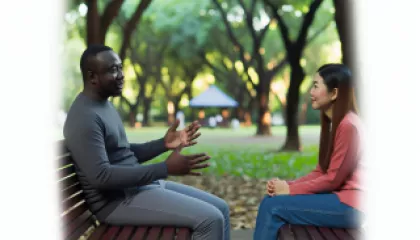How Can You Express Your Feelings More Effectively?
Expressing feelings effectively is a crucial skill that often goes overlooked. We all experience a wide range of emotions, but not everyone knows how to communicate these feelings properly. This can lead to misunderstandings, strained relationships, and internal stress. So, how can you express your feelings more effectively? Let's explore some practical strategies.
Understand Your Feelings
The first step towards expressing your feelings effectively is understanding exactly what you're feeling. It's common to gloss over our emotions or dismiss them as unimportant. However, every emotion serves a purpose. They're signals indicating something about our experiences or perceptions. By acknowledging your emotions and understanding why they occur, you can communicate them more effectively.
Identify the Emotion
Are you feeling angry, sad, happy, anxious, or excited? Often, we struggle with identifying our feelings because we tend to bundle them into broad categories. Try to be specific. Instead of saying you're feeling "good" or "bad," try to identify the exact emotion. Are you content, relieved, or joyful?
Understand the Reason
Once you've identified the emotion, try to understand where it's coming from. What triggered this response? Was it a certain event, a comment made by someone, or a memory? Understanding the source of your emotion will help you express it more accurately.
Practice Mindfulness
Mindfulness is the practice of being present and fully engaged with whatever we’re doing at the moment — free from distraction or judgment, and aware of our thoughts and feelings without getting caught up in them. This practice can help us better understand our emotions.
Observe Your Feelings
Instead of reacting immediately to your emotions, take a moment to observe them. How is this feeling affecting you physically? What thoughts are accompanying this emotion?
Accept Your Feelings
Some emotions can be uncomfortable to experience, but it's important to accept them instead of pushing them away. Remember, every emotion serves a purpose. Accepting your feelings is an essential step in understanding them and expressing them effectively.
Improve Your Communication Skills
Once you've developed a deep understanding of your emotions, it's time to communicate them. Improving your communication skills will help you express your feelings more effectively.
Use "I" Statements
When expressing your feelings, use "I" statements instead of "you" statements. For example, instead of saying "You make me feel ignored," say "I feel ignored when I don't get a response." This helps to avoid blaming others and keeps the focus on your own feelings.
Be Direct and Honest
Don't beat around the bush. If something is bothering you, say it directly. However, remember to be respectful. Honesty does not mean being harsh or rude. It's about expressing your feelings openly and sincerely.
Seek Help When Needed
Expressing feelings can be challenging for some people, particularly if those feelings are associated with trauma or deep-seated issues. In such instances, it might be beneficial to seek help from a mental health professional. Therapists can provide tools and techniques that can aid in understanding and expressing feelings more effectively.
Practice Regularly
Like any other skill, expressing feelings effectively requires practice. Start with minor feelings and gradually work your way up to more intense emotions. Regular practice will make it easier to express your feelings effectively in the future.
Conclusion
Expressing feelings is a fundamental aspect of human communication. By understanding your emotions, practicing mindfulness, improving your communication skills, seeking professional help when necessary, and practicing regularly, you can learn to express your feelings more effectively. This not only benefits your personal well-being but also enhances your relationships with others.








